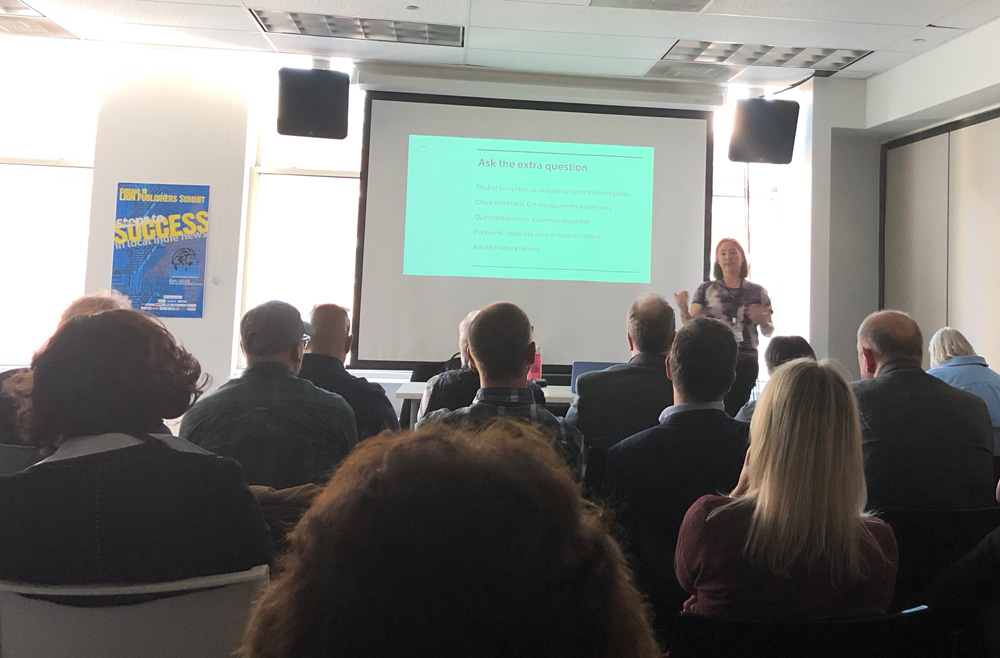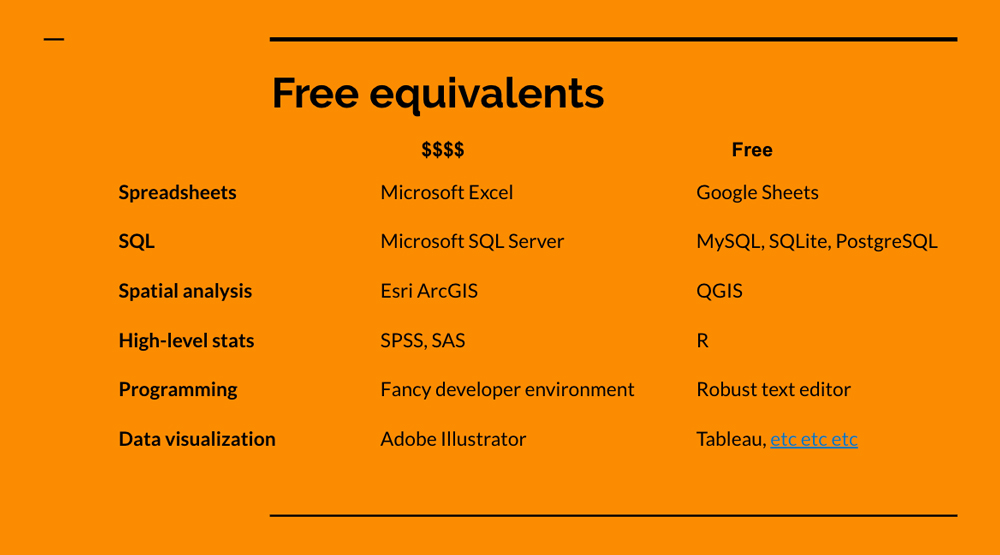Investigative reporting on a shoestring budget
Investigative reporting can seem daunting for small newsrooms, especially when it comes to budget. Denise Malan of Investigative Reporters &

Investigative reporting can seem daunting for small newsrooms, especially when it comes to budget. Denise Malan of Investigative Reporters & Editors (IRE) shared some insights with LION Summit attendees on how investigative reporting can be done on a “shoestring.”
When it comes to investigative reporting, studies conducted by IRE show that readers prefer that category of news over nearly anything else. Investigative reporting also builds trust in news organizations and helps build a consistent and loyal audience.
The problem with investigative reporting is that it can cost a newsroom a lot of money and resources. In the cases shown, a group of journalists spent two years and $750,000 covering one story. But it doesn’t have to be that way if you get creative and follow a few tips.
Create a culture of “Everyday Investigative”
- Ask the extra question
- Follow up
- Background everyone
- Build good habits
- Be curious
- Use FOIA constantly
- Stockpile data
- Commit to training and improvement
Think of every story as an opportunity for an investigation. You should also put events and issues into a state or national context. Always ask, “Who might be harmed by this?”
Follow up
- Follow up on coverage by looking into questions such as:
- Did the politician/police chief/company deliver on their promises?
- What was the effect of a new law or decision?
- How much did that project actually cost?
- Did the company pass a follow-up inspection?
Background everyone
Whether covering politics, lifestyle or even your local sports, run a quick background on everyone to make sure you’re providing facts on the situation and the individuals involved. This could include major sources, candidates for office, prominent business owners, subjects in feature stories and more.
Make a standard background checklist for newsroom that includes court records (criminal, civil, bankruptcy), campaign donations, credentials, business records, disciplinary records, Google searches, social media, and previous jobs.
In one case study, a group of high school journalists did a simple background check on their principal’s credentials. Just days later, she resigned as a result of what they found. Another example provided was the easily traceable claim from a mayoral candidate who falsely touted credentials as an Olympic gold medal winner.
Download a great Backgrounding Checklist here.
Build good habits
Regularly check for:
- Lawsuits involving government agencies and officials
- Internal affairs investigations for law enforcement agencies
- Audits and internal reports
- Regulatory actions and lawsuits for businesses covered
- FOIAs
- Campaign finance
- Legislation, legislative disclosures
Be curious
Just being curious is the start of good investigative reporting. Start with something on your beat or in your community that fascinates you. Run down tips from meetings and interactions within the community, AT LEAST make a phone call. Another angle is asking how much things cost, or why things might be done a certain way.
Use FOIA Constantly
When it comes to FOIA (Freedom of Information Act) requests, it’s a good standard to have several requests “in the oven” at a time, especially if you believe some will take a long time. You should always assume documents are public and make the agency tell you why they should be exempted.
Use spreadsheets or Google docs to track your ongoing and completed records requests. You can and should also use calendar reminders to follow up on your requests and to bug your sources.
Stockpile useful data
Stockpiling data that can be easily referenced is a good practice for investigative reporting. Data could include:
- Calls for service
- Audits & annual reports
- Phone directories & org charts
- Voter registration rolls
- Accidents
- Budgets & payroll
- Special funds & travel records
- Boards & commissions (what they do and who is on them)
Cheap or free tools and resources for newsrooms
Documents
DocumentCloud: uploading, annotating, analyzing and embedding documents
Overview: help analyze tons of documents
CometDocs or Tabula: converting pdfs into data
Data & visualization
Google Fusion Tables: point maps or heat maps, easily embeddable
Tableau Public (or Desktop, free to IRE members): sophisticated visualizations with no programming necessary
TimelineJS: convert a spreadsheet into an interactive timeline
StorymapJS: convert a spreadsheet into an interactive map
OpenRefine: clean large data sets more quickly and easily

Public records cheap
- Ask to inspect, not for copies
- Ask for information in electronic format (Excel, text for data, pdfs for documents)
- Appeal high costs (greater than .25/page) or excessive staff time
- Write about the costs
Free resources
Reporters Committee for Freedom of the Press: legal defense and FOIA hotline
Data Journalism Handbook free tools
Free tools for data viz (Sharon Maclis, ComputerWorld)
Sign up for the weekly newsletter
Join the LION mailing list to get our weekly roundup of opportunities and resources for news entrepreneurs. View our most recent issues.
Related Articles
How five LION members are maximizing revenue and community engagement through events
Whether you’re a solopreneur or part of a larger team, there are in-person event opportunities for everyone.
Jess deRivera joins LION Publishers as our Membership Services Manager
She’ll help provide a seamless experience to current and prospective members.
Four big opportunities that local news publishers can pursue right now
Here’s how to capitalize on each one.
